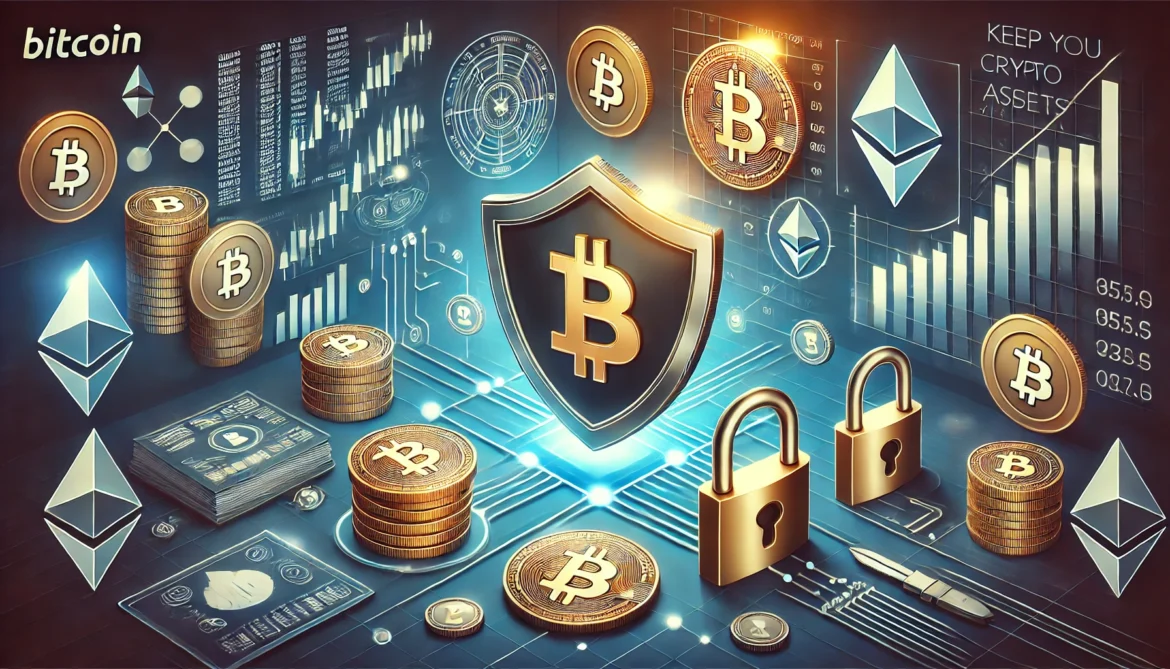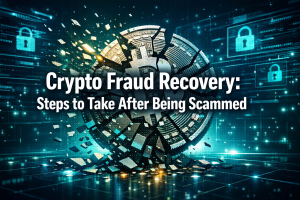Table of Contents
As long as cryptocurrency remains in its growth phase, so do the risks relating to it. Trading in digital assets may be very rewarding, but at the same time, this exposes one to security breaches and other forms of fraud/cybercrime. Whether you are a novice or experienced trader, it pays well to take good care of your crypto assets.
Having onboard the best security practices will save you from falling into the hands of a hacker or other types of malware activities. Further, we are going to look at a number of recommendations on how to protect your means better while trading cryptocurrency. If you want to swap USDT to BTC, using the secure platform Exolix will make that process safer because it provides speedy and anonymous crypto swaps without registration.
Choose a Reliable and Safe Exchange
The very foundation of safe cryptocurrency trading is to choose a reliable exchange. Not all of them equally provide security, and that’s why it’s so important to pick out one with a solid reputation and sound security protocols in place. You are going to want to find an exchange that genuinely cares about the safety of its users’ funds and has a good history within the industry.
Here’s what you need to take into consideration:
Reputation: Check for user reviews and look into the history of the exchange. Most exchanges that have existed a long usually tend to have good feedback.
Security Features: Check if the platform supports 2FA, encryption, and cold storage.
Noncustodial platforms: Non-custodial exchanges like Exolix provide greater custody over one’s assets, as they themselves do not store deposits on their websites. Consequently, this reduces the risk of losing your assets in the event of an exchange hack. For instance, Exolix is able to perform fast and private swaps without requiring an account or declaration of personal information.
Enable Two-Factor Authentication (2FA)
What is Two-Factor Authentication? Two-factor authentication, known as 2FA, is one simple but mighty way of safeguarding your crypto trading account. The security feature requires users to input a secondary way of verification besides their password, typically a code sent to phones or from an app like Google Authenticator.
Here’s why 2FA is so important:
In this way, when your password is compromised, the whole attack needs the second authentication code to access your account.
It prevents unauthorized access by setting a big barrier to the process of hackers’ attacks, even when your credentials happen to be leaked in a data breach.
Be sure to enable 2FA for all accounts dealing with cryptocurrency, including all exchanges, wallets, and email services connected with your crypto activities.
Keep Long-Term Holdings in Hardware Wallets
If you’re a long-term holder of crypto, it’s well worth considering a hardware wallet. A hardware wallet is an actual, physical device where your private keys are kept offline, which means your assets are protected against online threats such as hackers and malware.
Hardware wallets, such as Ledger or Trezor, have a couple of tiers in security. If stolen-because, say, someone managed to steal your wallet-he would have to produce the PIN and the recovery phrase to access your funds. This hardware wallet keeps all your assets offline, thereby reducing the chances of cyberattacks by a mile.
You can keep smaller amounts in online wallets for everyday use or trading, but the majority of your long-term storage should always be on a hardware wallet for extra security.
Keep Your Software and Devices Updated
One of the most common ways hackers breach users is by finding old versions of software with known vulnerabilities. To not be their next target, make sure that everything is up-to-date on your device, including:
Operating Systems: Regularly update your desktop and mobile devices to the latest patches of operating systems. Wallet and Trading Apps: Run recent versions of crypto wallet and trading apps for activities; indeed, updates mostly contain vital security fixes. Automatic Updates: Allow all forms of automatic updates for your devices and apps, so you may be sure that you keep updated with protection without needing to check yourself manually.
Avoid Phishing Attempts
It is actually done to trick users into disclosing their login credentials or private keys, while it appears in the form of a legit platform. Cyber criminals emailing or messaging on various platforms to appear like an exchange, wallet, or any other crypto-related service. How not to get hooked by phishing:
Check Website URLs: Always verify the URL of the website which you are accessing before entering any credentials. The fake websites often use slightly misspelled domain names.
Never click on suspicious links. Unsolicited messages or emails, which prompt one to click on a link to log in, should be looked at suspiciously. Instead, one should navigate to the official website directly.
Anti-Phishing Codes: Some exchanges offer anti-phishing codes. These allow the user to verify that communications from them are genuine.
Leverage Non-Custodial for Privacy
If your priority is privacy and you do not want to give your personal information to exchanges, then non-custodial platforms like Exolix are the way to go. Non-custodial exchange does not store your funds, meaning a user is always in full control of his assets. Such a platform does not ask to register an account or pass through identification procedures to let your transaction remain private.
Exolix has the possibility to enable anonymous, secure over-the-counter trade. For example, you can exchange usdt to btc on Exolix, and the whole process is right on the website without registration and exposing your personal information. It is a perfect platform for traders who regard privacy and security in a transaction. You can therefore start your safe swap at Exolix.
Create Strong, Unique Passwords
Having strong and unique passwords for all accounts forms the basis of crypto asset protection. Insecure or reused passwords create conditions to allow an intruder to get access using a brute force attack or data breach.
Securing Your Password
Generate a Complex Password: A complex password should contain uppercase and lower case alphabets, numbers, and special characters.
Password manager: the password managers will devise the complex passwords for one and store them in a vault, in such a way that one does not need to remember all those. Never repeat your password: Set a different password for each account such that when it gets hacked, the rest of the accounts remain safe.










2 comments
[…] As the crypto world grows, keeping your investments safe is key. Picking a trustworthy exchange is crucial for protecting your money. For tips on secure trading, check out this guide on keeping your crypto assets secure. […]
[…] date on how to keep your investments safe. You can learn more about protecting your crypto assets here. Ready to start buying WAX? Follow this guide to join the exciting world of […]